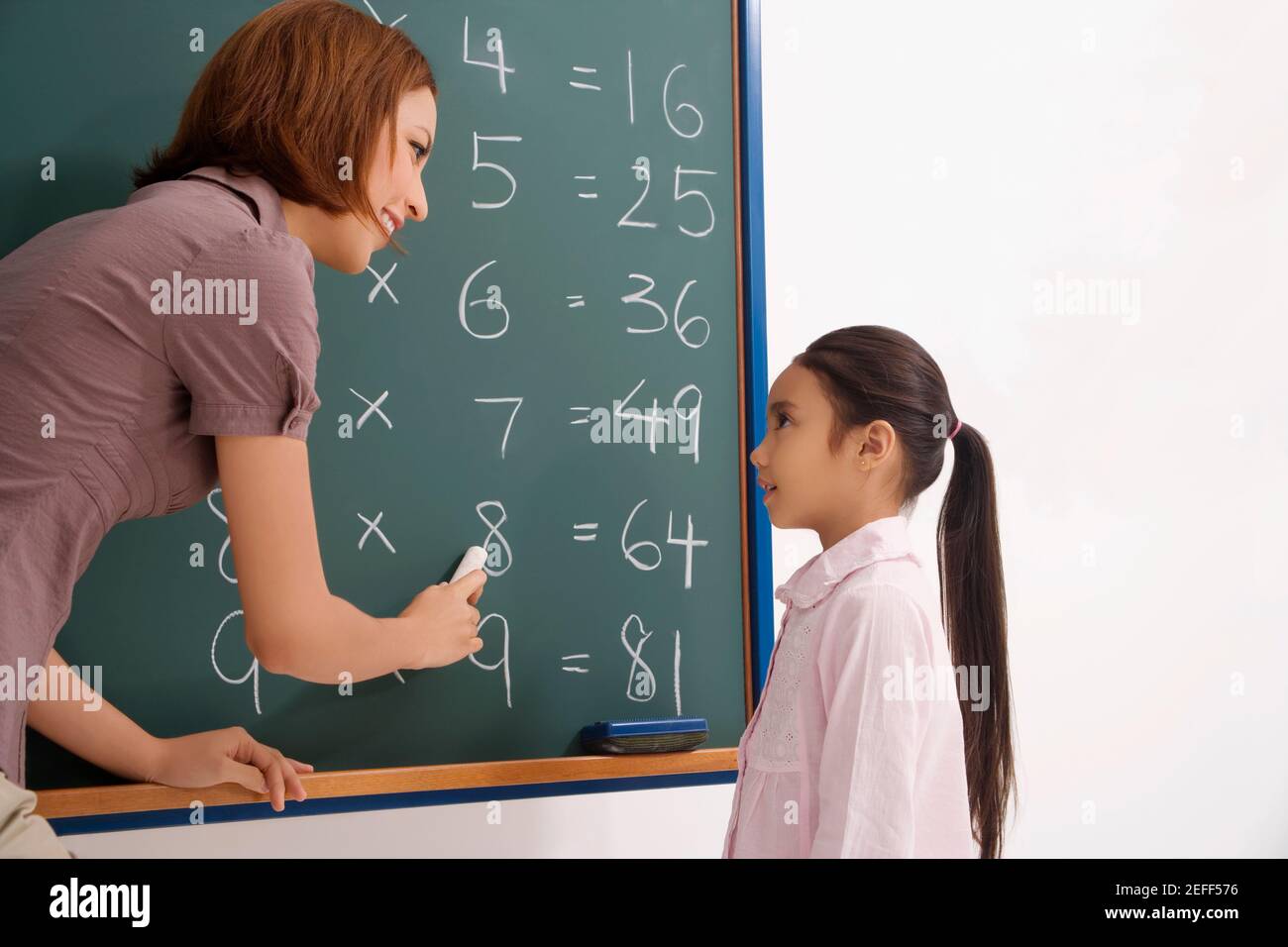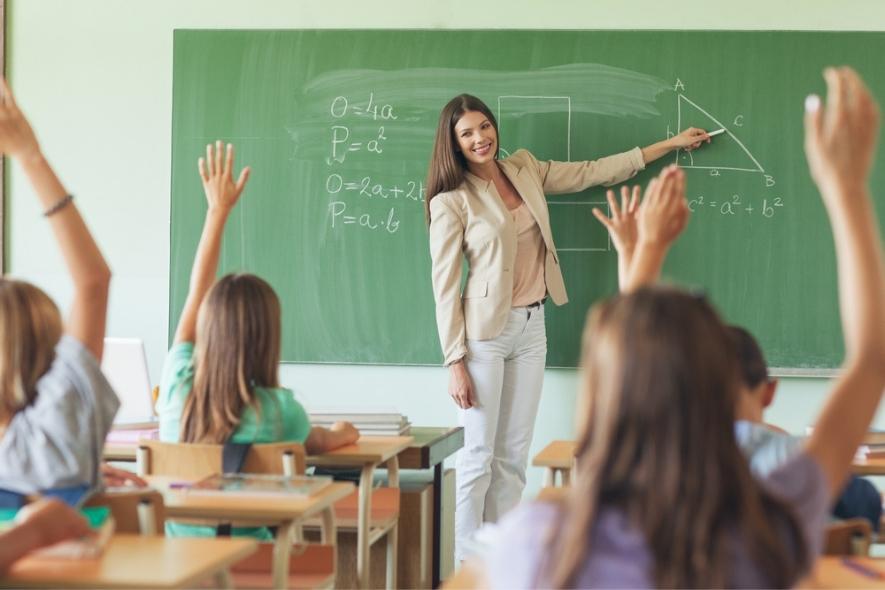Master Primary Science Concepts with Quality Tuition in Singapore
Master Primary Science Concepts with Quality Tuition in Singapore
Blog Article
Exploring the Various Mentor Strategies in Main Science Education And Learning Today
Inquiry-based understanding, hands-on experiments, and the integration of modern technology are redefining just how teachers involve young minds. Additionally, collaborative methods and distinguished instruction are being utilized to cater to the varied requirements of pupils, boosting both engagement and understanding.
Inquiry-Based Understanding
Inquiry-Based Discovering (IBL) is an instructional method that urges pupils to explore scientific concepts through questioning, examination, and hands-on experimentation. This technique stresses the duty of students as energetic individuals in their knowing, advertising essential thinking and problem-solving abilities. By engaging with real-world inquiries, pupils become curious and motivated, which boosts their understanding of clinical principles.
In IBL, instructors serve as facilitators, assisting students as they navigate their inquiries as opposed to supplying information directly. This student-centered strategy enables distinction, suiting various discovering designs and rates. Trainees create skills in developing theories, creating experiments, and assessing information, which are essential for clinical proficiency.
Furthermore, IBL cultivates collaboration among students, motivating them to share concepts and findings. This collective inquiry advertises social abilities and a feeling of area within the class. The procedure of query motivates strength, as pupils find out to accept failing as a stepping rock toward understanding.
Hands-On Experiments
Hands-on experiments are a vital component of efficient science education and learning, complementing the principles of inquiry-based understanding. These experiments permit students to engage straight with scientific concepts, fostering a much deeper understanding via experiential learning. By adjusting products and observing outcomes, young students can realize abstract theories in tangible means.
Such activities advertise important reasoning and analytical skills, as trainees assume outcomes, conduct experiments, and assess results. This procedure motivates them to ask inquiries, improve their understanding, and develop a scientific way of thinking. In addition, hands-on experiments can be tailored to varied knowing styles, making sure that all pupils have the opportunity to involve meaningfully with the material.
Additionally, hands-on experiments typically encourage collaboration amongst peers, promoting teamwork and communication skills. Functioning in teams allows students to share ideas, discuss searchings for, and pick up from each other, which boosts their overall academic experience.
Incorporating hands-on experiments into the primary science curriculum not only enriches the discovering setting yet additionally cultivates a lifelong interest in scientific research. By actively taking part in their education and learning, students are a lot more most likely to develop an enthusiasm for scientific query that extends beyond the class.

Modern Technology Assimilation
Incorporating technology right into primary scientific research education and learning has become increasingly crucial in promoting student interaction and improving finding out end results. Making use of electronic tools, such as interactive simulations, online laboratories, and academic software program, gives pupils with possibilities to discover clinical concepts in ingenious means. These sources facilitate a much deeper understanding of intricate subjects by permitting students to envision and adjust variables that would certainly be unwise in a standard class setting.
Additionally, innovation combination encourages personalized learning experiences. Trainees can progress at their very own speed, reviewing challenging ideas through multimedia resources, which accommodate various discovering styles. This adaptability not just sustains private growth yet additionally cultivates a sense of freedom in learners.
Additionally, modern technology offers as a bridge to real-world science, connecting pupils with present research and specialist payments. Access to scientific journals and online databases broadens students' viewpoints on clinical query and cultivates critical assuming abilities.
Collaborative Discovering
Collaborative learning plays a vital role in key scientific research education by fostering synergy and communication abilities among pupils. This method urges learners to function together, share expertise, and take part in analytic, which improves their understanding of clinical concepts. By getting involved in group tasks, pupils discover to express their ideas, pay attention to varied point of views, and negotiate options, every one of which are vital abilities in both real-world and scholastic contexts.

Research suggests that joint discovering can result in raised motivation and involvement in science topics, as students find satisfaction in shared experiences (primary science tuition Singapore). Additionally, this approach prepares pupils for future collective endeavors, furnishing them with the skills needed for efficient teamwork in greater education and expert atmospheres. Inevitably, embracing collective learning in main scientific research education and learning can substantially improve the learning experience and promote a deeper understanding of scientific query
Set Apart Instruction

Set apart direction can show up in different ways, such as differing the content, processes, or items of knowing. Teachers may make use of tiered assignments that supply varying degrees of intricacy, allowing trainees to function at their particular preparedness levels. In addition, flexible grouping approaches can facilitate partnership amongst trainees with various capacities, fostering peer discovering.
Analysis plays a vital function in this strategy, as it informs instruction and helps teachers recognize each pupil's one-of-a-kind needs. Formative assessments, such as observations and quizzes, can guide teachers in readjusting their strategies to boost discovering end results. primary science tuition Singapore. Ultimately, by executing separated direction in main science education, teachers can cultivate an extra efficient and fair understanding setting, equipping all students to reach their complete capacity in understanding clinical phenomena
Final Thought
In summary, the varied training methods in primary scientific research education and learning, including inquiry-based discovering, hands-on experiments, innovation combination, joint learning, and set apart instruction, collectively add to a much more reliable learning environment. These techniques advertise crucial thinking, analytic abilities, and a deeper comprehension of scientific ideas. By applying here are the findings these strategies, teachers can develop encouraging and appealing class that deal with the varied needs of trainees, inevitably fostering a long-lasting passion in scientific research and enhancing academic achievement.
Inquiry-Based Learning (IBL) is a pedagogical approach that urges pupils to discover scientific ideas through questioning, investigation, and hands-on experimentation.Collaborative learning plays an important function in main scientific research education and learning by fostering team effort and communication skills among pupils.Study indicates that collaborative knowing can lead to increased motivation and engagement you can find out more in scientific research topics, as students discover satisfaction in common experiences.In cultivating an inclusive knowing atmosphere, set apart guideline arises as a crucial strategy to accommodate the diverse demands and capacities of pupils in primary science education. Inevitably, by carrying out differentiated guideline in main science education and learning, teachers can grow a much more efficient and equitable understanding setting, equipping all pupils to reach their complete potential in understanding clinical sensations.
Report this page